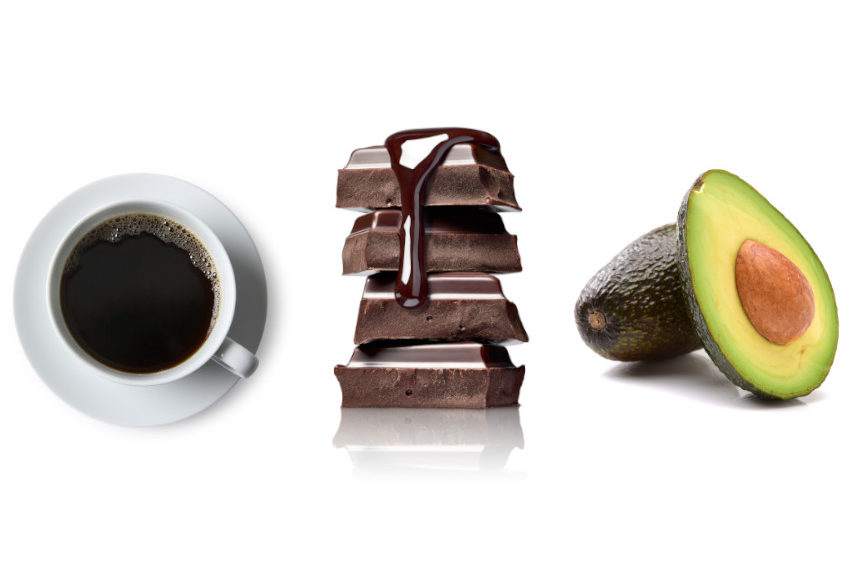“Your Health Checkup” is our online column by Dr. Douglas Zipes, an internationally acclaimed cardiologist, professor, author, inventor, and authority on pacing and electrophysiology. Dr. Zipes is also a contributor to The Saturday Evening Post print magazine. Subscribe to receive thoughtful articles, new fiction, health and wellness advice, and gems from our archive.
Order Dr. Zipes’ books, Ari’s Spoon, a new novel, as well as Bear’s Promise and Damn the Naysayers, A Doctor’s Memoir. Check out his website at dougzipes.com.
Coffee
I drink three to four cups of coffee daily, sometimes topping off dinner with a double espresso. No, the caffeine doesn’t keep me awake and, so far, I’ve had no episodes of atrial fibrillation after stopping all alcohol, including wine with dinner, seven months ago.
It is refreshing to enjoy the health benefits of something that also tastes good…like having your cake and eating it, too. Recent information presented at the American College of Cardiology’s 71st Annual Scientific Session indicated that coffee was associated with a lower risk of heart disease and dangerous heart rhythms, as well as longer life, for people with and without heart disease.
One study of more than 382,000 individuals (57 years’ average age and half women) without known heart disease found that drinking two to three cups of coffee a day was associated with the greatest benefit, a 10-15 percent lower risk of developing coronary heart disease, heart failure, a heart rhythm problem, or dying for any reason. Researchers noted a U-shaped relationship with coffee intake and new heart rhythm problems, with less benefit seen among those drinking more or less than the two to three daily cups.
A second study of over 34,000 individuals with cardiovascular disease at baseline found that two to three cups of coffee a day was associated with lower odds of dying compared with having no coffee. Of the 24,000 people who had an arrhythmia at baseline, people with atrial fibrillation who drank one cup of coffee a day were nearly 20 percent less likely to die than non-coffee drinkers. Lower rates of death were seen across all coffee types. Coffee of any amount was not associated with a higher risk of heart rhythm problems, including atrial fibrillation.
Conclusions regarding coffee and caffeine must be drawn cautiously because compounds in coffee other than caffeine may be operative. Coffee beans contain over 100 biologically active compounds, some of which can help reduce oxidative stress and inflammation, improve insulin sensitivity, boost metabolism, inhibit absorption of fat, and mitigate against abnormal rhythms. Also, the studies may be confounded by other dietary factors such as creamers, milk, or sugar and data that come from a self-reported questionnaire.
However, another investigation supports the potential benefit of caffeine. Scientists demonstrated that caffeine mimics the effect of a new drug (evolocumab, Repatha) that can reduce LDL (bad) cholesterol, which would be consistent with the benefits described in the epidemiologic studies.
Chocolate
The authors of that scientific study sought other drugs that had actions like caffeine and found a compound in the cacao plant called theobromine that might also lower LDL cholesterol. This finding may explain the presumed protective effects of chocolate, associated in some studies with reduced risk of cardiovascular disease-related death, heart attacks, stroke, and diabetes.
Avocados
I also like guacamole that I make with fresh avocados, crushed tomatoes, onions, and peppers. Avocados contain dietary fibers and plant-sourced healthy (unsaturated) fats. A new study found that eating two or more servings of avocado weekly (one serving was half an avocado) was associated with a lower risk of cardiovascular disease. Investigators followed almost 70,000 women (ages 30 to 55 years) from the Nurses’ Health Study and almost 42,000 men (ages 40 to 75 years) from the Health Professionals Follow-up Study for thirty years. They found that those who ate at least two avocado servings weekly had a 16 percent lower risk of cardiovascular disease and a 21 percent lower risk of coronary heart disease compared to those who never or rarely ate avocados. Substituting avocado for certain fat-containing foods like butter, cheese, or processed meats could lead to a lower risk of cardiovascular disease events.
It is important to stress that the epidemiological studies are observational with self-reported amounts and types of food consumption, so direct cause and effect cannot be proved. Nevertheless, the foods are consistent with the Mediterranean Diet, which has established cardiovascular benefits. It’s reassuring to eat foods that you know at least won’t harm you, and may actually be beneficial.
Featured image: Shutterstock
Become a Saturday Evening Post member and enjoy unlimited access. Subscribe now




Comments
How much guacamole is equivalent to eating the desired amount of avocado?
Is , at least, 70% cacao in dark chocolate the target for eating chocolate?
The article did not specify how many ounces in each of the cups of coffee was recommended.
FYI Espresso has less caffeine than Breakfast Blend.